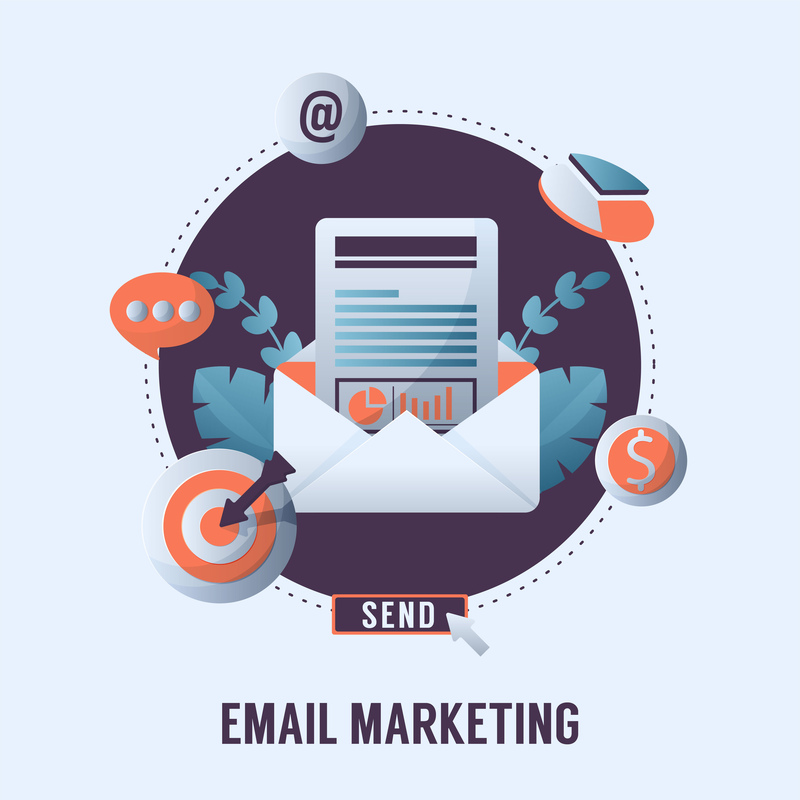Introduction: Why Email Marketing Still Works in 2025
Despite the hype around social media, influencer marketing, and AI chatbots, email marketing remains one of the most reliable and effective ways for small businesses to grow. It’s cost-effective, scalable, and delivers an unmatched return on investment.
Email marketing provides an average ROI of $42 for every $1 spent.
For small business owners juggling tight budgets and limited staff, this is a game-changer.
But here’s the tricky part: with so many email marketing tools out there, which one should you choose?
This guide breaks down the best email marketing services for small businesses in 2025, including features, pricing, pros and cons, and who each one is best suited for.

What Small Businesses Should Look for in an Email Marketing Tool
Before choosing a platform, consider the following:
1. Ease of Use
Your team is likely small—maybe just you. So the tool should be user-friendly and require no coding or design experience.
2. Automation
Automated welcome emails, drip campaigns, or cart abandonment messages can save time and improve engagement.
3. Pricing
You want good value without overspending. The best tools offer free plans or affordable pricing for smaller lists.
4. Deliverability
Emails should land in the inbox, not the spam folder. Choose providers known for high deliverability.
5. Scalability
Can the platform grow with you as your business and subscriber list expand?
Now let’s explore the best platforms in 2025.
1. MailerLite – Best for Beginners and Budget-Friendly Plans
Why It Stands Out:
MailerLite offers one of the best free plans on the market. It’s simple, clean, and easy to learn—even if you’re not tech-savvy.
Top Features:
- Drag-and-drop email editor
- Beautiful templates
- Marketing automation
- Landing pages and signup forms
- Email scheduling and analytics
Free Plan:
1,000 subscribers and 12,000 emails/month
Paid Plan:
Starts at $10/month for unlimited emails
Pros:
- Clean, clutter-free interface
- Ideal for small business owners and freelancers
- Great support and tutorials
Cons:
- Advanced automation and integrations require a paid plan.
Best For:
Bloggers, freelancers, local service businesses, and new entrepreneurs

2. ConvertKit – Best for Creators and Online Coaches
Why It Stands Out:
ConvertKit is built specifically for creators: YouTubers, podcasters, writers, and course creators. It offers powerful tagging and automation to target the right audience with the right content.
Top Features:
- Visual automation builder
- Tag-based subscriber organization
- Custom opt-in forms
- Integrates with Shopify, WordPress, and Teachable
- Email sequences for funnels
Free Plan:
1,000 subscribers, basic features
Paid Plan:
Starts at $15/month
Pros:
- Designed for personal brands and creators
- Easy to segment and manage lists
- Automation is intuitive and powerful.
Cons:
- Not the best for traditional eCommerce
- Slightly higher starting price than MailerLite
Best For:
Coaches, educators, solopreneurs, and content marketers
3. Brevo (Formerly Sendinblue) – Best All-in-One Marketing Suite
Why It Stands Out:
Brevo combines email, SMS, chat, and CRM—giving small businesses a full marketing toolkit under one roof. It’s a great choice if you’re managing multiple communication channels.
Top Features:
- Email marketing with templates
- SMS and WhatsApp campaigns
- Live chat
- Advanced automation
- CRM for contact management
- Transactional emails and analytics
Free Plan:
300 emails/day (unlimited contacts)
Paid Plan:
Starts at $25/month for up to 20,000 emails/month
Pros:
- Multi-channel marketing in one dashboard
- GDPR compliant and highly secure
- Offers both automation and CRM
Cons:
- Daily sending limit on the free plan
- The interface may be overwhelming for first-timers.
Best For:
Growing small businesses, local stores, and marketing teams

4. Moosend – Best for Automation on a Budget
Why It Stands Out:
Moosend offers powerful marketing automation tools usually found in premium platforms—at a fraction of the price.
Top Features:
- Advanced email automation workflows
- Real-time campaign analytics
- A/B testing
- Custom fields and segmentation
- Beautiful, responsive templates
Free Trial:
30 days (full access)
Paid Plan:
Starts at $9/ 9/month
Pros:
- Excellent automation options
- In-depth reporting
- Cheaper than most competitors
Cons:
- No free forever plan
- Fewer integrations than ConvertKit or Mailchimp
Best For:
eCommerce businesses, SaaS startups, marketing-savvy entrepreneurs
5. Mailchimp – Most Popular, Best for General Use
Why It Stands Out:
Mailchimp is one of the oldest and most trusted names in email marketing. It’s easy to use, integrates with almost everything, and offers useful tools for small business growth.
Top Features:
- Email builder with pre-designed templates
- Simple automation tools
- A/B testing and performance tracking
- CRM and behavioral targeting
- Built-in website builder
Free Plan:
500 contacts and 1,000 monthly email sends
Paid Plan:
Starts at $13/month
Pros:
- Recognized brand with tons of tutorials
- Generous free plan for new businesses
- Integrates with Shopify, WooCommerce, and more
Cons:
- It can get pricey as your list grows
- Limited features on the free plan
Best For:
Retailers, bloggers, and small business owners who prefer a trusted platform
Quick Comparison Table
| Platform | Free Plan | Automation | Best For | Starting Price |
| MailerLite | 1,000 subs | Yes | Beginners, bloggers | $10/month |
| ConvertKit | 1,000 subs | Yes | Creators, coaches | $15/month |
| Brevo | 300 emails/day | Yes | Multi-channel marketing | $25/month |
| Moosend | 30-day trial | Yes | Budget-friendly automation | $9/month |
| Mailchimp | 500 contacts | Yes | General small business use | $13/month |
How to Choose the Right Email Tool for Your Small Business
Each tool has its strengths, depending on your specific needs. Here’s a quick cheat sheet:
- Just getting started? Try MailerLite.
- Creating content or selling courses? Go with ConvertKit.
- Need multi-channel tools like SMS? Choose Brevo.
- Want powerful automation without high cost? Pick Moosend.
- Seeking a reliable, adaptable platform? Stick with Mailchimp.
Start small. Focus on building your list and improving your email content. You can always upgrade or switch tools later as your business grows.
Final Tips for Email Marketing Success
- Start with a welcome series. This boosts engagement right from the start.
- Segment your subscribers. Sending targeted emails results in higher open and click rates.
- Optimize your subject lines. It’s the first thing people see—make it count.
- Test and analyze. A/B test subject lines, content, and send times to improve results.
- Be consistent. Send valuable content on a regular schedule to stay top of mind.

Conclusion
Email marketing isn’t just another digital tactic—it’s one of the most powerful tools in your business toolkit. And the best part? You don’t need a big budget or team to make it work.
With tools like MailerLite, ConvertKit, Brevo, Moosend, and Mailchimp, small businesses can easily grow their audience, automate key messages, and drive long-term revenue using the best email marketing services for small business.
So don’t wait. Start building your email list today—and choose the best email marketing services for small business that fits your goals, budget, and style.

